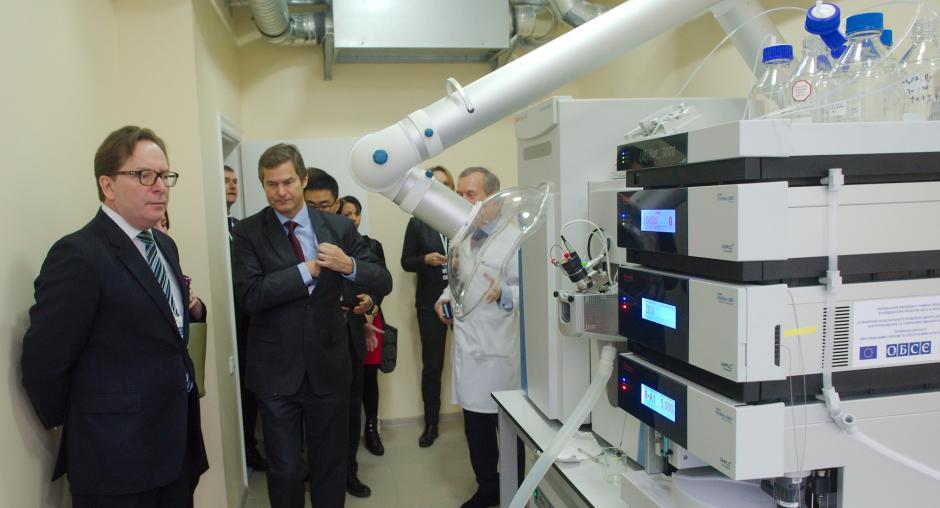OSCE Project Co-ordinator helps Ukraine to enhance chemical security by expanding capacities for identification of substances

The Ukrainian National Reference Centre for Identification of Controlled and Toxic chemicals, established and equipped with OSCE support, was presented to the country’s expert community on 10 December 2019 in Kyiv.
The Reference Centre was established at the facilities of Medved’s Research Center of Preventive Toxicology, Food and Chemical Safety to support national authorities with credible analysis of chemicals, which is an important tool to respond to incidents and conduct investigations.
As part of joint project efforts with the country’s Ministry of Health, the OSCE Project Co-ordinator helped to develop regulatory documents for establishing and functioning of the Centre, as well as for its role in interagency co-operation. A modern high-resolution chromatograph with spectrometer was provided to expand capacities for precise, fast and reliable detection and identification of chemicals.
“The equipment we provide will extend analytical capabilities of the laboratory to obtain structural information on highly toxic compounds, including chemical weapon agents and their precursors. This is an important step towards enhancing control of dual-use materials according to requirements of UN Security Council Resolution 1540 (2004), and the country’s readiness to counter chemical threats,” said Henrik Villadsen, OSCE Project Co-ordinator in Ukraine. “It will also enable fast and reliable detection and identification of chemicals during emergencies, which is crucial for saving people’s lives.”
The UN Security Council Resolution 1540 (2004) on non-proliferation of weapons of mass destruction and their means of delivery requires that all the States shall take and enforce effective measures to establish domestic controls to prevent the proliferation of nuclear, chemical, or biological weapons and their means of delivery, including by establishing appropriate controls over related materials.
The OSCE Project Co-ordinator in Ukraine implemented the project with the financial support of the European Union and the United States of America.
